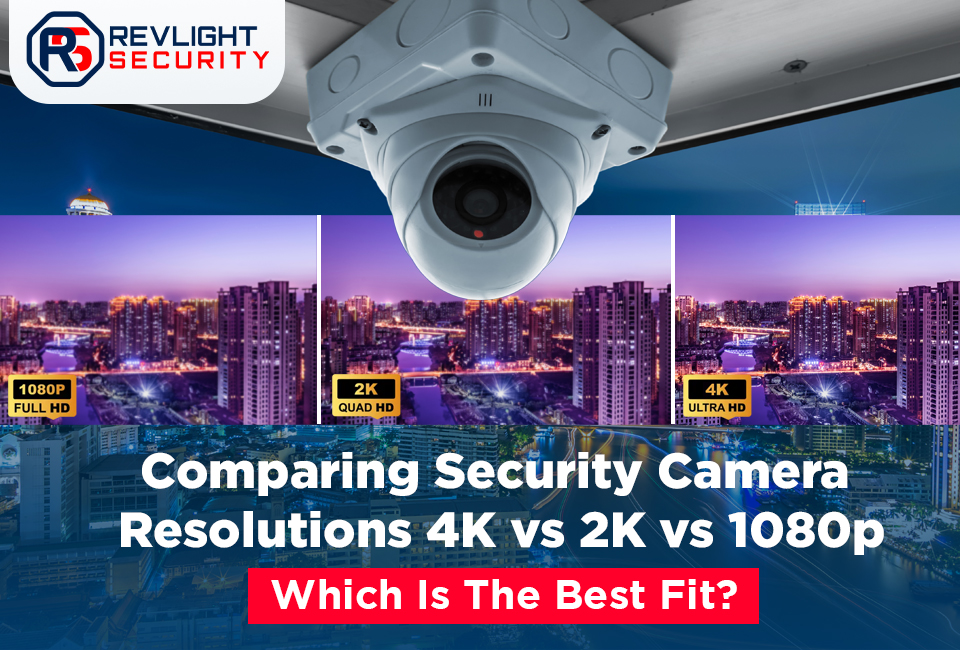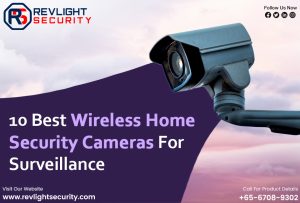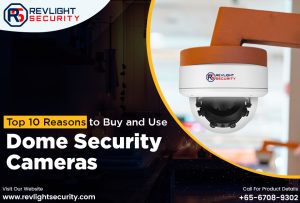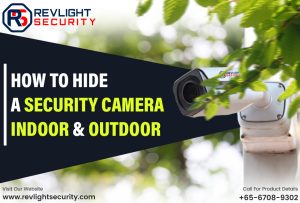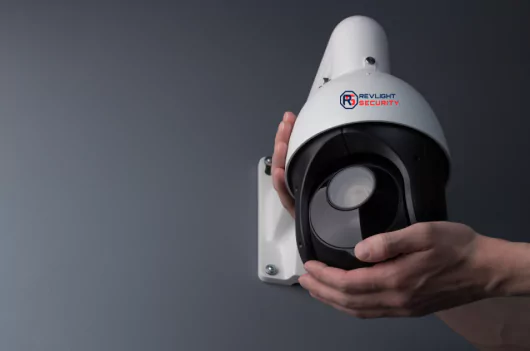Security cameras have become an integral part of our worlds, be it our homes or commercial properties. But how do you decide which are the best home security cameras? Among many factors, Camera Resolutions play an important role in your decisions. The resolution of camera lenses determines the clarity of images as well as the videos they capture. Today’s world does not believe in blur or low-quality images, as they don’t help much in emergencies.
The most common security camera systems in the market today have 4K or 2K video resolution, and some are also 1080p. So, if you were to choose between these three, which would be your first preference?
The decision can be somewhat difficult, but rest assured, this blog post discusses everything you need to know. We have made a thorough comparison between a 1080p, 2K, and 4K security camera for you. Let’s dive right in!
Camera Resolution- Why Does It Matter In Security Systems?
Resolution is the number of pixels that a camera sensor can capture and display in an image or video. The resolution is usually represented by width*height in pixels, for example, 1920×1080 for Full HD (1080p) or 3840×2160 for Ultra HD (4K). Higher resolution means more pixels which translates to sharper and clearer images and videos with more detailing. In security camera systems, resolution determines the level of detail and clarity of surveillance footage. This impacts the system’s efficiency in monitoring day-to-day movements and identifying any potential threats following any events or individuals. Whether you choose an Analog or IP security camera, selecting the right resolution is essential for maximizing surveillance.
In simple terms, determining the resolution of a security camera system is crucial before purchasing a setup.
Understanding 1080p, 2K, and 4K Security Camera Resolutions
1080p, 2k, and 4k security camera systems are also termed Full HD, Quad HD (QHD), and Ultra HD (UHD), respectively. Their width*height in pixels varies from each other, and therefore, the picture quality differs. Based on the size of your premises, your budget, and the type of surveillance required, you can choose among them. Here are the details of each of their resolutions:
1080p or Full HD Cameras
- Camera Resolution: 1920×1080 pixels
- Image Pixels: 2.07 Million (Approx.)
- Ideal For general surveillance in various environments
- An affordable camera system for budget-conscious buyers
2K or QHD Cameras
- Camera Resolution: 2560×1440 pixels
- Image Pixels: 3.68 million (Approx.)
- Provides two times more clarity than the 1080p security camera
- Costs more than the Full HD but less than the UHD Security systems.
- Best for identifying faces and license plates
4K or UHD Cameras
- Camera Resolution: 3840×2160 pixels
- Image Pixels: 8.29 million pixels (Approx.)
- Four times the resolution of 1080p and twice that of 2K
- Ideal for large businesses, public spaces, parks, and more.
Remember that image resolution is not the only factor in identifying the best home security camera, but it is a reliable way to choose the right fit among others.
Differentiating The Three Cameras Based on Practical Applications
Full HD Cameras (1080p)
The cameras with 1080p resolutions are suitable for general surveillance needs, which include residential properties, small businesses, and retail stores. Here are the use case scenarios:
- Home Security- Monitoring entrances, driveways, and common areas.
- Retail Stores- Entrance/Exits, keeping an eye on customers and staff with detailed footage.
- Small Offices– Entry points, hallways, lobby, office spaces, and more.
Quad HD Cameras (2K)
Cameras with 2K video resolution can be a perfect fit for bigger homes, medium-sized businesses, and similar areas where finer details in images and video are necessary. Here are some use-case scenarios:
- Medium Businesses– Entry points, canteen, hallways, lobby, office spaces, and more.
- Parking Lots- All-time surveillance of parked cars and identifying license plates, vehicle models, etc.
- Residential Complexes– Common areas, parking, lifts/elevators, and more.
UHD Cameras (4K)
The Ultra HD 4k security camera system is ideal for areas that need higher security than others with critical infrastructure. Here are the use-case scenarios:
- Large Commercial Properties- warehouses, factories, large retail stores, etc.
- Critical Infrastructure- Power Plants, Dockyards, Airports, etc.
- High-Security Areas- Government Buildings, Police Stations, Air Force Base, etc.
Revlight Security has all types of camera systems available for enhanced surveillance. You can choose the type of camera you need and make sure your space remains safe and secure all the time.
Pros & Cons of 1080p, 4k, and 2K Security Cameras
4k Security Cameras
Pros
- Such cameras capture the highest level of detail.
- These come in handy for critical security tasks.
- 4K resolution camera can provide wide coverage.
- It meets the current standards of high-resolution surveillance.
- These are ideal for high-security areas because of their long-term relevance.
- Many manufacturers offer dome security cameras with 2k resolution for a variety of applications.
Cons
- 4K camera systems are more expensive than 1080p and 2k cameras.
- Their maintenance and operation are difficult and cost more.
- They consume significant storage space and require more bandwidth.
- Their existing systems need frequent upgrades due to increased resolution and data load.
2k Security Cameras
Pros
- These provide better details than 1080p resolution cameras.
- Identifying faces and objects becomes easier.
- They are the best option for higher resolution than 1080p and yet affordable price than 4k.
- These are more efficient in storage and bandwidth than 1080p.
- 2k security camera is suitable for both residential and commercial use.
Cons
- Although they are an affordable alternative to 4K, their cost is still more than 1080p.
- The operational costs increase due to more storage capacity.
- These cameras are not as detailed as 4k.
- These have shorter retention times compared to 1080 p
1080p Security Cameras
Pros
- These are the most affordable among all three,
- They work well with most existing security systems and infrastructure.
- 1080p cameras occupy less storage space and bandwidth.
- Best fit for small residential spaces and short-scale businesses.
Cons
- These do not capture fine details crucial for facial identification or license plates,
- They may become outdated in the future as the technology advances.
- These do not have enough clarity for expansive areas or environments that need higher security.
After these considerations, you can finally decide which camera is best suited for your homes and businesses. You can choose a bullet security camera or any other type you need to keep an eye out for any activity or inconvenience around the space.
Choose The Right Camera Resolution & Maximize Security
Whether you choose a 1080p, 2K, or 4k security camera, the one that fits your needs will become the right choice for you. You can also check Revlight security’s camera packages and decide which one to go for. Just remember that maintaining a safe and secure environment is important and the best home security camera is the one that offers maximum clarity. Check out our different products, or analyze more about camera resolutions to settle for the perfect fit.
Frequently Asked Questions
Can I Upgrade My Existing Camera System to Support Higher Resolution Cameras?
It may be possible, but that requires additional considerations. You can learn more about higher-resolution cameras, understand details about 4K, Full HD, or 2K video resolution, and assess your system’s compatibility with the upgraded versions. Do not forget to read more about storage solutions, network benefits, and measures to support the increased data load for best practices.
Are 4K Security Cameras Worth The Investment?
Yes. Investing in a 4K security camera can really make a difference. Surveillance with the finest quality makes your homes more secure, and that’s what a 4K resolution provides. The camera is suitable for higher-risk areas and offers unmatched clarity in images and videos. You can get crystal-clear images and detailed footage of your surroundings as well as personal spaces to keep everything in check.
How Does Higher Resolution (2K or 4K) Affect Storage And Bandwidth Requirements?
When the image resolution is higher, it increases the size of the picture. The byte size increase results in a higher demand for storage, as 2K and 4K security cameras generate larger files. This requires higher bandwidth for data transmission, resulting in increased costs and higher data loads.
What is the difference between 4K and 2K and 1080p?
4K (Ultra HD) cameras, with a resolution of 3840×2160 pixels, provide the highest detail, ideal for high-security areas and large properties. 2K (Quad HD) cameras offer 2560×1440 pixels, suitable for medium to large properties. 1080p (Full HD) cameras, at 1920×1080 pixels, are best for general surveillance in residential settings and small businesses. Each resolution level caters to different security needs and budgets.

